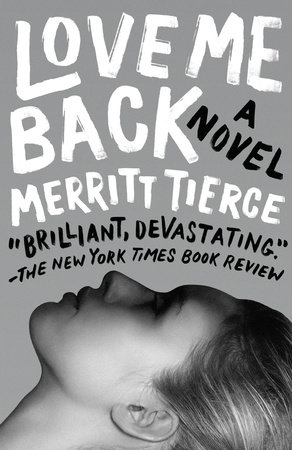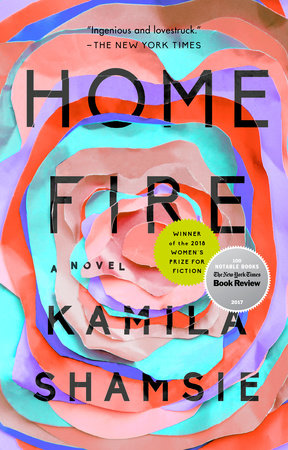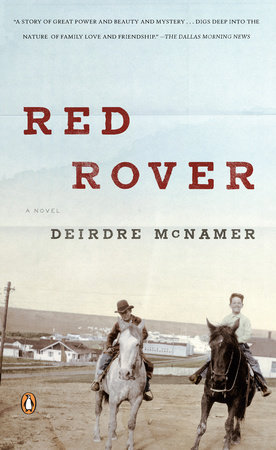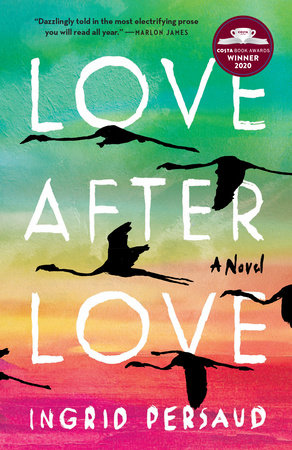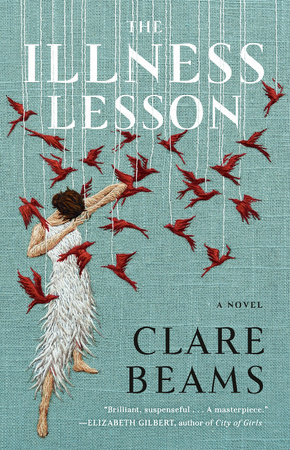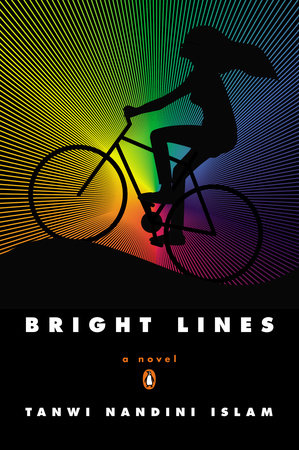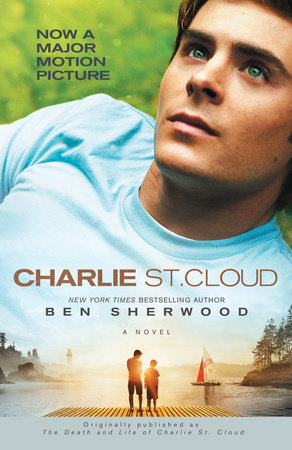A Conversation with the Author
Q: Daughter Alice’s strange and wonderful world of tattooing comes to life in Until I Find You, from the “flash” tacked to the parlor walls to the bands of fiercely loyal tattooists. What gave you the initial idea to set the novel in this world?
John Irving: I build a novel from the back to the front; I know the end of the story before I write the first sentence. I try to write the last sentence first, even the last several paragraphs. I knew that Jack’s father, William Burns, was waiting for his son to find him; I knew that William was institutionalized in a Swiss sanatorium, and that the final two chapters of the novel would bring us there. I began with the life of this man who has suffered losses–his son, two women he loved, lastly his music. I began with what physical manifestation his obsessive-compulsive disorder might take. That led me to making him a full-body–a tattoo addict. And that in turn led me to make Alice a tattoo artist, and the daughter of the tattoo artist who gives William his first tattoo.
Q: How did you research tattoo culture? Did you visit many parlors?
JI: In A Widow for One Year, when I was doing research in Amsterdam with a policeman–about the details concerning the murder of a prostitute–the policeman introduced me to Amsterdam’s most famous tattoo artist, Henk Schiffmacher. His tattoo name is Hanky Panky, but the police in Amsterdam used him as a handwriting analyst; he was also good at deciphering partial fingerprints. I already knew him. He was the first person I turned to for my tattoo research.
Meeting Henk led me to making connections with other tattoo artists in those North Sea ports. He knew everyone. I visited more than a dozen tattoo parlors in Europe; several in the U.S. and Canada, too, and I went to many tattoo conventions. I got two tattoos, so I knew what it felt like to be tattooed, and I learned how to tattoo. I gave a woman in Amsterdam a tattoo on her forearm. It was a sprig of holly to cover up a former boyfriend’s name. She must not have liked my work, because when I met her for dinner a few years later, she had covered up my cover-up with a third tattoo.
Q: You say in the novel that tattooing is a “sentimental” pursuit; how so?
JI: Maritime tattooing, from the end of World War I through the late 1960s or early 1970s, was chiefly souvenir shopping; one marked the body the way people used to put travel stickers on their suitcases. Ports of call, hearts (broken and otherwise), sailing ships, girls in grass skirts, mermaids, sea monsters, pirates. And there were always religious tattoos–20 percent of all tattoos are religious. But all that has changed. The maritime world is fading. The new tattoos are too various to name.
Q: Have you met any “collectors,” like Jack’s dad, William Burns? What do you think drives this particular obsession?
JI: I have met a few collectors. They often don’t know why they can’t stop; the reasons vary. People are obsessed by different demons; it’s impossible to generalize the motives of tattoo addicts, just as there is no single reason, medically, why many full-body types feel cold. But many of them do. Jack comes to the conclusion that his father has had the sort of life that might make anyone feel cold; maybe the tattoos have nothing to do with it.
Q: Another fascinating world that is re-created in the novel is that of Hollywood, as Jack embarks upon his film career. How did your experiences writing screenplays and working with film agents influence your portrayal of Hollywood?
JI: My experiences in Hollywood–the people, producers, actors, and directors I have known–certainly helped me shape a life for Jack in L.A. My eldest son and his family live there. The film producer Richard Gladstein, who made The Cider House Rules, has become a close friend–as have my agent at C.A.A., Bob Bookman, and my entertainment lawyer, Alan Hergott. They’re all in the novel. I love Los Angeles. I might not love it if I lived there, or if the movie business were my only business. I like writing screenplays and working in that world as an occasional change from the solitary endeavor of writing a novel, but writing novels is my first love. I couldn’t live without writing novels; writing a movie is just for fun.
Q: What do you think Jack Burns would have become, had he not chosen acting?
JI: Maybe Jack would have been a writer if he hadn’t been an actor first. They are similar. Jack is most uncomfortable being himself. Being someone else is easier. I invent whole lives for a living; I am someone else, or several other people, every day.
Q: Along those lines, is there another career, other than writing, that you yourself could have imagined undertaking?
JI: I might have been an actor; I was always comfortable onstage, and my writing is always very visual–cinematic, really. Read the opening “shot” (as I call it) to Hardy’s Tess of the d’Urbervilles. It’s a movie. Were they alive today, both Hardy and Dickens would have written screenplays. (I hope they would have written novels, too, of course.)
Q: Can you imagine a film being made of Until I Find You?
JI: I can easily imagine a film of Until I Find You. It would begin at the end of the novel, or near the end–in Part V, anyway. It would begin with Jack talking to Dr. Garcia, deep in “therapy”; Jack’s voice-over would narrate the story of his life in chronological order, with occasional interruptions from Dr. Garcia. Since I wrote many drafts of this novel in the first-person voice, I have in essence already written the voice-over. The film ends when he calls Dr. Garcia from the hotel room in Zurich and leaves a message for her on her answering machine. “Thank you for listening to meÉ” etc.
Q: The sport of wrestling makes another appearance in your work, as Jack Burns proves to be an accomplished wrestler in high school. Do you know the sport well?
JI: I’ve wrestled for twenty years.
Q: One particularly moving passage in the novel, that is also printed on the back cover, reads: “In this way, in increments both measurable and not, our childhood is stolen from us–not always in one momentous event but often in a series of small robberies, which add up to the same loss.” Do you think it’s possible to have a pure childhood in today’s world? Do you think children grow up too fast, even under the healthiest circumstances? Or is this loss, this growing up, just a natural and inevitable part of childhood?
JI: No adult in my family would tell me anything about who my father was–not until I was thirty-nine and divorcing my first wife. This was an immeasurable gift to my imagination; I have been inventing my father most of my writing life. And I had sex with an older woman when I was eleven; in Until I Find You, Jack is ten. This is not without effect. As a teenager, and into my twenties and thirties I had an attraction to older women that I couldn’t understand or explain. I am an overprotective father–even a paranoid one. But human experience is individual. I am a novelist and occasional screenwriter because I don’t believe in generalizations; I believe in specific stories.
Q: We’re always curious to know how a writer writes; would you mind sharing a glimpse of your process and craft?
JI: I believe in plot. I must know where I’m going before I start. When I start writing a book, the actual writing, I don’t want to be distracted from the sentences themselves. I want to know the story ahead of me; I know all about the characters. I want to be thinking only about the sentences–writing them and rewriting them. Revision is more than half of my work as a writer.
Q: After spending so much time with Jack Burns, inside his head, has he become one of your favorite characters? Do you even have favorite characters–or, like children, do you simply love them all? Or, this might be fun: Do you have a favorite minor character in the novel? One that others might overlook?
JI: Like children, I love all my characters, but some were a bigger stretch for me than others. Dr. Larch in The Cider House Rules, Dr. Daruwalla in A Son of the Circus. I take pride in them. Jack Burns was the hardest of them all because he’s not a stretch; he was hard because he was the most like me. Certain minor characters repeat themselves. Melony in Cider House is reborn as Hester in A Prayer for Owen Meany, and they are both reborn and enlarged upon in the character of Emma in Until I Find You. Emma is an achievement I’m proud of. I love her. In another way, for her power over Jack, I love Emma’s mother, Mrs. Oastler, too.
Q: Along those lines, is there a minor moment or scene in the novel that resonates with you in a special way? Something others might overlook, but that you might have a peculiar fancy for, or something that makes you laugh?
JI: In Until I Find You, Jack entertains the illusion that he actually “remembers” his trip to the North Sea with his mom when he was four–he is confronted by the truth of how little he could possibly have “remembered” only in Helsinki when he meets the four-year-old son of the pregnant aerobics instructor. He sees himself in that boy. That’s a huge moment in the book for me.
Q: Are there particular books or authors that have influenced you? What is your own favorite book?
JI: Dickens was and remains the most important author for me. I have read his books many times, and have even purposely not read one of them. I am saving it for a severe illness or a near-death experience. Something I will read when I have to despair of doing anything else. I have not read Our Mutual Friend. That’s the one I have saved.






